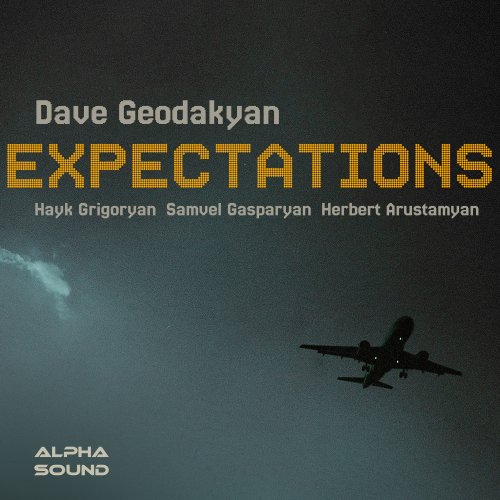Mhairi Hall - Airs (2020)
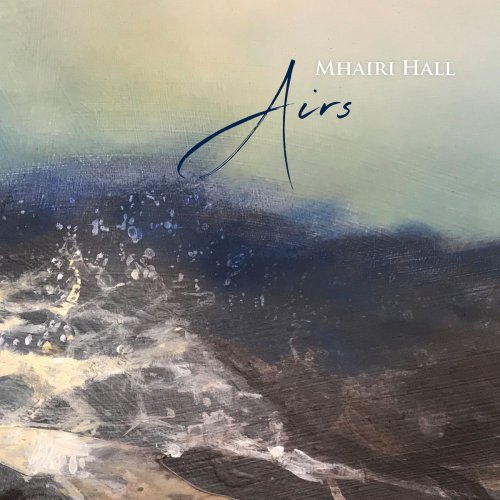
Artist: Mhairi Hall
Title: Airs
Year Of Release: 2020
Label: Strath Records
Genre: Classical Crossover
Quality: FLAC (tracks)
Total Time: 45:05
Total Size: 143 Mb
WebSite: Album Preview
Tracklist: Title: Airs
Year Of Release: 2020
Label: Strath Records
Genre: Classical Crossover
Quality: FLAC (tracks)
Total Time: 45:05
Total Size: 143 Mb
WebSite: Album Preview
1. A Peak Apart (6:50)
2. Skye (4:13)
3. Mairi (4:43)
4. St Kilda (5:26)
5. Lullaby for Eilidh (4:03)
6. Crear (3:29)
7. Sileas (6:59)
8. Ae Fond Kiss (3:40)
9. The Parting Glass (5:43)
Synergising ambient sounds from nature, archive recordings and layers of warm harmonium with Mhairi’s beautiful piano interpretations of Scottish slow airs. Every now and then a record comes along that just exactly fits my mood. Not necessarily a permanent mood but more as my emotional life proceeds on its journey, so a piece of music on its own trajectory intercepts mine and they are so right that we travel a parallel route. So it is with Mhairi Hall’s Airs, a beautiful album of traditional and traditional-inspired tunes arranged and delivered in a way that possibly defies classification.
As a nascent pianist (I reckon to be performance ready when I reach my late eighties, though I do keep revising that figure upwards) I can appreciate the movement that these tunes have, the flowing of hands, the rhythm of fingers, the sensual enjoyment of playing.
There is a distinct link between the sensuality of the playing with the sensuality of the landscapes laid before us as the music paints the contours of the land, both the land we can see and the land we can feel. This album celebrates not just the particular aesthetics of the Scottish landscape but also of the seascapes around its rugged perimeter. Thus, it is no accident that one of the most evocative places on the album is that of St Kilda. St Kilda is the small island group on the edge of the Outer Hebrides whose last inhabitants were evacuated in 1930, and this air is a survivor from that place. Originally Òran na h-Inghinn – or Song for the Girls – comes into view as the waves wash and the call signs from distant times are dotted and dashed out in faint Morse. It settles into a series of ebbs and flows, the melody gently rocking the boat as we gaze back, and then slowly fading as what rose from the sea returns to the sea.
Altitude is part of the scenery across much of Scotland and across much of Mhairi’s work – her earlier releases with her trio feature the Cairngorms. Airs feature three of Mhairi’s own compositions: Crear, the place in Argyll where these recordings were made; Lullaby for Eilidh, her daughter; and A Peak Apart. This starts with a drone from her harmonium as the peaks appear slowly out of the mist. The rise is gentle yet firm. Hints of melancholy appear through separation, yet this is a separation that is temporary in the vast geological timescales by which mountains are measured.
The traditional tunes are not so much (re)arranged but give space, and are given time in both a musical and chronological sense. An Old Skye Air, from a 19th-century collection of highland music, takes this offer of space and uses it to provide emphasis to each note, every chord. If required, there might be a new emphasis, a combination of the memory of the old with a new memory, and all in a tradition where it is important to reinterpret, try new ways. You don’t lose the energy, you don’t lose the form, you don’t lose the sound, you just hear it again – differently.
A really interesting recording is the physical bringing together of the old and the new in Màiri. The song on which the air is developed, Luinneag MhicLeòid and written by 17th-century poet and nurse Màiri nighean Alasdair Ruaidh, was recorded in 1965 by Rev William Matheson. Thanks to the wonders of recording technology (and the Matheson family) Mhairi used it and built the piano around it, originally as accompaniment and then after the song, the piano developing the theme. As the end nears, the song returns as a distant echo and all retreat towards the finish.
The other track that includes significantly more than the piano is Sìleas. The song, Do dh’Arm Righ Sheumais, comes from another female poet, Sìleas na Ceapaich, a late 17th-century supporter of the Jacobites many of whose poems were of political themes. The track starts gently with the tune on a fiddle and then moves from the delicate to the more assertive, perhaps Sìleas herself coming through, but then returns to the warm reassurance of the tender melody at the end.
The final two tracks make for a fine pairing and parting. Robert Burns’ Ae Fond Kiss does not give you the words as text but they are the notes, the cadences, the measure of the sweetness of the kiss and the sadness of the loss. The low emotional turn of the piece is echoed by the turn of the waves as they roll through and around the melody. Parting may be sweet sorrow but also there are partings that present hope for the future and, who knows, hope for meeting up again. Such is The Parting Glass. Here there is an entrance, a stepping into the leaving, then hesitancy: I’m going to leave but we need to say goodbye and I don’t want to go and should we stay a while, but it’s better to go now…. We do leave but we leave on a bright note. And we shall come back again.
And if that doesn’t sum up this album, perhaps sample it like a bottle of wine: I’m getting mountains, the sea, the grey, the bright, the mist, the sunshine, the solitude, the camaraderie, human emotions, things greater than us, beyond us, behind us, in front of us. Go to bed half an hour early, put this on and drift. Excellent.
As a nascent pianist (I reckon to be performance ready when I reach my late eighties, though I do keep revising that figure upwards) I can appreciate the movement that these tunes have, the flowing of hands, the rhythm of fingers, the sensual enjoyment of playing.
There is a distinct link between the sensuality of the playing with the sensuality of the landscapes laid before us as the music paints the contours of the land, both the land we can see and the land we can feel. This album celebrates not just the particular aesthetics of the Scottish landscape but also of the seascapes around its rugged perimeter. Thus, it is no accident that one of the most evocative places on the album is that of St Kilda. St Kilda is the small island group on the edge of the Outer Hebrides whose last inhabitants were evacuated in 1930, and this air is a survivor from that place. Originally Òran na h-Inghinn – or Song for the Girls – comes into view as the waves wash and the call signs from distant times are dotted and dashed out in faint Morse. It settles into a series of ebbs and flows, the melody gently rocking the boat as we gaze back, and then slowly fading as what rose from the sea returns to the sea.
Altitude is part of the scenery across much of Scotland and across much of Mhairi’s work – her earlier releases with her trio feature the Cairngorms. Airs feature three of Mhairi’s own compositions: Crear, the place in Argyll where these recordings were made; Lullaby for Eilidh, her daughter; and A Peak Apart. This starts with a drone from her harmonium as the peaks appear slowly out of the mist. The rise is gentle yet firm. Hints of melancholy appear through separation, yet this is a separation that is temporary in the vast geological timescales by which mountains are measured.
The traditional tunes are not so much (re)arranged but give space, and are given time in both a musical and chronological sense. An Old Skye Air, from a 19th-century collection of highland music, takes this offer of space and uses it to provide emphasis to each note, every chord. If required, there might be a new emphasis, a combination of the memory of the old with a new memory, and all in a tradition where it is important to reinterpret, try new ways. You don’t lose the energy, you don’t lose the form, you don’t lose the sound, you just hear it again – differently.
A really interesting recording is the physical bringing together of the old and the new in Màiri. The song on which the air is developed, Luinneag MhicLeòid and written by 17th-century poet and nurse Màiri nighean Alasdair Ruaidh, was recorded in 1965 by Rev William Matheson. Thanks to the wonders of recording technology (and the Matheson family) Mhairi used it and built the piano around it, originally as accompaniment and then after the song, the piano developing the theme. As the end nears, the song returns as a distant echo and all retreat towards the finish.
The other track that includes significantly more than the piano is Sìleas. The song, Do dh’Arm Righ Sheumais, comes from another female poet, Sìleas na Ceapaich, a late 17th-century supporter of the Jacobites many of whose poems were of political themes. The track starts gently with the tune on a fiddle and then moves from the delicate to the more assertive, perhaps Sìleas herself coming through, but then returns to the warm reassurance of the tender melody at the end.
The final two tracks make for a fine pairing and parting. Robert Burns’ Ae Fond Kiss does not give you the words as text but they are the notes, the cadences, the measure of the sweetness of the kiss and the sadness of the loss. The low emotional turn of the piece is echoed by the turn of the waves as they roll through and around the melody. Parting may be sweet sorrow but also there are partings that present hope for the future and, who knows, hope for meeting up again. Such is The Parting Glass. Here there is an entrance, a stepping into the leaving, then hesitancy: I’m going to leave but we need to say goodbye and I don’t want to go and should we stay a while, but it’s better to go now…. We do leave but we leave on a bright note. And we shall come back again.
And if that doesn’t sum up this album, perhaps sample it like a bottle of wine: I’m getting mountains, the sea, the grey, the bright, the mist, the sunshine, the solitude, the camaraderie, human emotions, things greater than us, beyond us, behind us, in front of us. Go to bed half an hour early, put this on and drift. Excellent.
Download
Mhairi Hall - Airs FLAC
Mhairi Hall - Airs FLAC
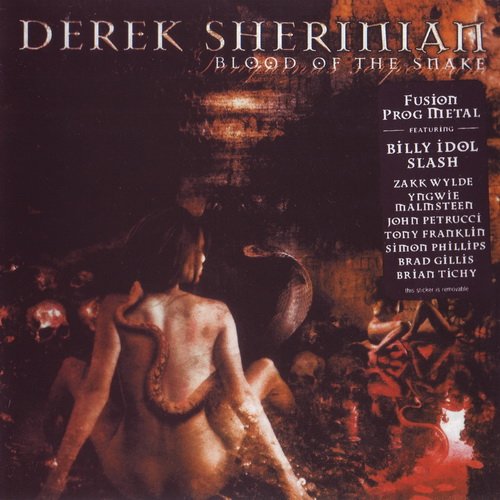
![Art Ensemble Of Chicago - Full Force (1980/2025) [Hi-Res] Art Ensemble Of Chicago - Full Force (1980/2025) [Hi-Res]](https://www.dibpic.com/uploads/posts/2025-12/1766322547_cover.jpg)
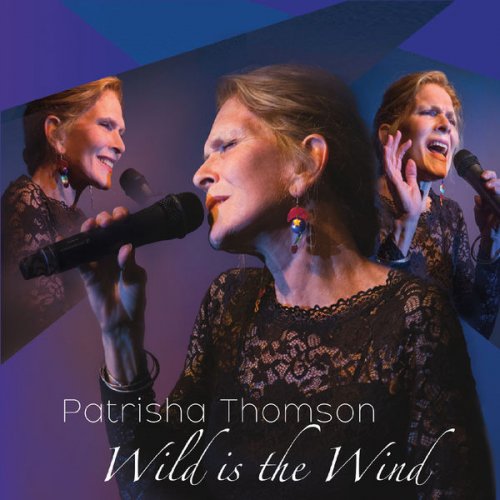
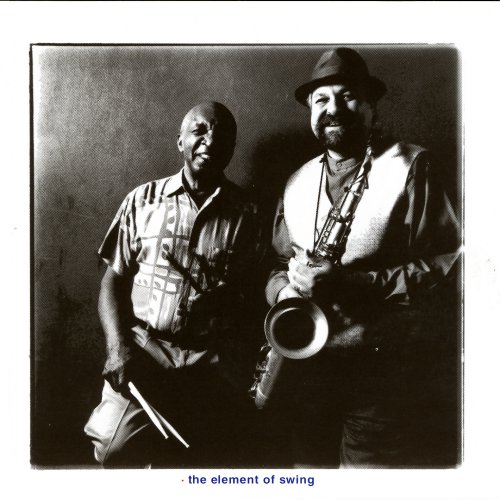

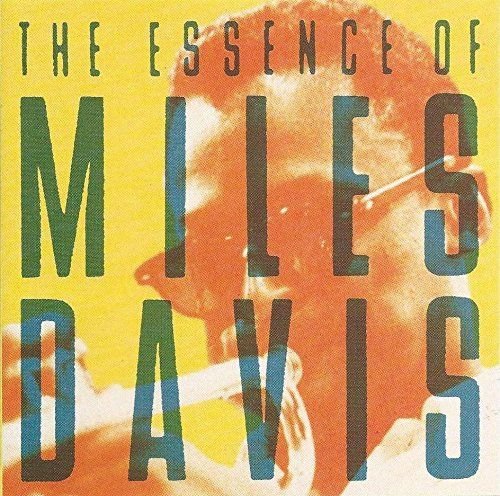
![Alma Micic - You're My Thrill (2024) [Hi-Res] Alma Micic - You're My Thrill (2024) [Hi-Res]](https://www.dibpic.com/uploads/posts/2025-12/1766493943_amyt500.jpg)
![Erwan Keravec - Whitewater (2025) [Hi-Res] Erwan Keravec - Whitewater (2025) [Hi-Res]](https://img.israbox.com/img/2025-12/21/2e6xtjojbwml63os6dxwp1bzj.jpg)
